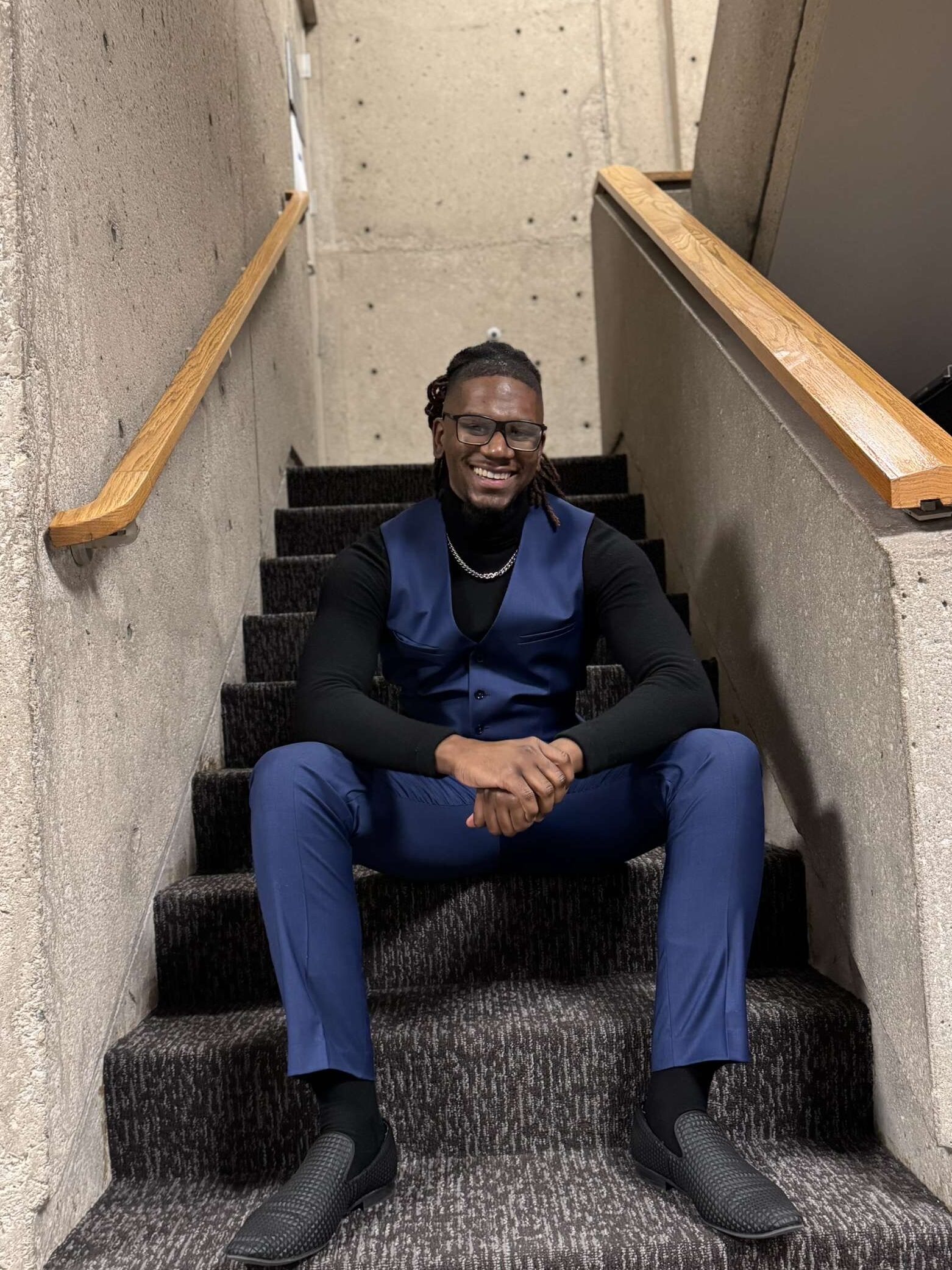If there is anything nobody talks about regarding the college experience, it must be the internship or any work one must do to prepare for the world. Two Sinclair Community College students shared their internship experience with the Clarion.

Meet Joha Juarez, who is majoring in finance and interning in logistics.
Juarez’s interest in finance was primarily influenced by his brother and his family’s involvement in real estate. He expressed a passion for observing the markets, including stock trading and commodities trading, which further fueled his interest in finance.
“I got an internship in logistics by applying on LinkedIn. What I do is I am a broker; I am the middleman between the shipper and the carrier. We get loads from, for example, Target, and they need a load to be shipped at a certain place, and we find a carrier to ship those loads,” said Juarez.
Despite interning in a field different from his major, Juarez still applies finance concepts in his logistics internship, primarily through his role as a broker. He uses revenue generation while knowing that his income is commission-based, which directly ties in with how effectively he can negotiate and close deals for shipping loads, requiring a grasp of pricing strategies and market rates.
Sales skills are a significant part of his job; it involves convincing carriers to accept loads and requires strong sales skills, which is a critical aspect of logistics, as he needs to persuade carriers to agree to specific price ranges. He also uses financial metrics, such as accounting, problem-solving, initiative, and networking.
“My perspective on financial analysis and planning is still the same; logistics is just an add-on. It’s just introduced me to more things. Logistics is just a completely new industry I am barely getting involved in, so nothing’s changed about my perspective on finance,” said Juarez.
Juarez’s challenges in logistics were new and unexpected, and he needed to learn more about the logistics industry than he expected. It took him a while to get the concept of logistics with the training and work with certain people who have been in the industry for many years to understand the concepts of tracking loads, finding carriers, and learning the system.
“I would also say you need a good basic knowledge of logistics to thrive in it, but I did some research on my own and did well on the training about understanding the logistics industry. Some challenges were calling carriers, calling shippers, making sure that our loads arrive on time, and what to do when a truck breaks down on the road,” said Juarez.
Juarez advises those majoring in finance and considering interning in a different field to acquire as much experience as possible, regardless of the industry. He also encourages expanding one’s horizons and exploring various fields to broaden one’s skill set.
“Have mentors, work on your LinkedIn resume, and just try to get out there a little more. Land as many internships and apply as possible; try to land as many jobs as possible; they do not have to be paid jobs. Just try to learn from people in the industry you decide to pursue. Learn and grow from people who know more than you do,” Juarez said.
<Part 2: Career Advice To Students From Students>

“The skills I found most useful during my internship are my communication skills. Without them, I couldn’t function at my full potential in such a line of work even though I have not reached it yet. Additionally, my interviewing skills played a huge role in my internship, which involved doing podcasts, screenwriting, and editing. Being able to conduct a structured and organized interview makes the process very easy,” said Kaleb Cromer, a Multimedia Journalism major.
To Cromer, none of the journalistic practices surprised him while he was doing the internship. Everything he has encountered has been familiar, as taught in his courses. He has had many experiences outside the internship, so nothing was significant of a surprise.
When researching and writing a story, Cromer ensures he consumes as much credible information as possible about the case or story. Then, he inspects everything and condenses it into something more manageable. After that, he can smoothly write the story with proper references and context.
He also takes deadlines seriously, which pushes him to get things done sooner rather than later. He does fact-checking immediately at the beginning of the process. He has an internship with the Clarion.
“The real-world environment is almost parallel to what I’ve studied in class, at least from my personal experience. The transition from class to the internship was smooth for me. It follows the same structure. In some cases, the internship work is easier to manage and navigate than some classes,” Cromer said.
Regarding emerging trends in the modern entertainment industry, Cromer seems to be in tune with most of the media’s happenings, so he hasn’t seen anything he hasn’t considered or observed before.
“In a situation where I have to consider gray areas or ethical dilemmas, l usually learn what is right from a moral standpoint no matter what. I take drastic measures to ensure accuracy and unbiased reporting. Hours of research and a completely fair and dispassionate perspective, not only for the sake of the journalism but for the audience; that is what they deserve as readers. For them to be properly informed, accuracy and unbiasedness are top priorities,” Cromer said.
Cromer has learned that excellent delivery of material or information engages audiences. If the audience connects with the person informing them, that develops a bond that keeps people engaged; therefore, presenting the information clearly and confidently is the best thing to do.
“The advice I would give to another journalism student considering an internship is, do it. It is a positive opportunity to jump on. After spending years studying and learning everything you need to know to succeed in the field, you will be ready when the internship is presented. Once you enter the internship, you’ll become even better and much more prepared for the work world. Be confident; don’t doubt yourself and your capabilities. You have made it this far for a reason, so take that next step,” Cromer said.
The internship has given Cromer new opportunities, such as hosting a podcast professionally and having professors come in and talk to him about their experience as social workers. It has inspired him to use the skills he has learned and create multiple creative works within his career. This internship has also sharpened the skills he had acquired previously and made Cromer increase his goals for the future.
Although the internship may initially be challenging, it is a great way to learn and prepare for the real-world workplace.
Esperance Amuri, Online Editor

